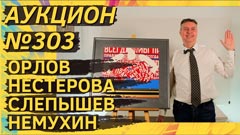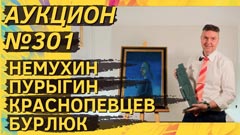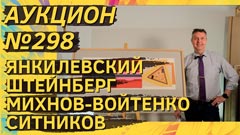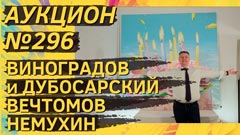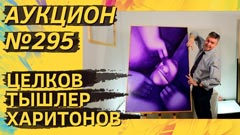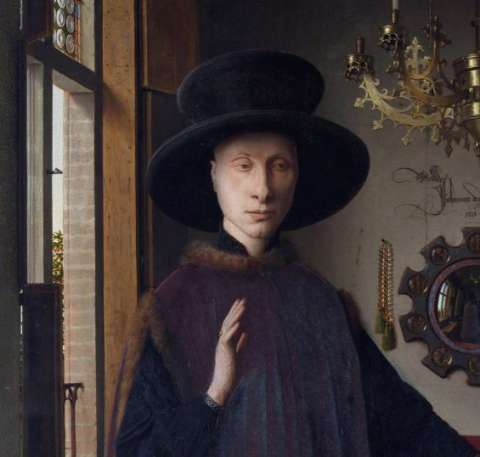
The events of January 15, 2020 developed almost in the spirit of political activism. They were waiting for a routine dull event of the era of «stability». No desire to watch and listen. And here's the bang: the resignation of the Medvedev government, the ex-head of the tax service Mishustin at the premiere, while the changes to the Constitution are not clear. And all this already four years before the end of the presidential term.
What are the consequences for the long-suffering economy in general and the national art market in particular?
If you rely on previous life experience, then any major planned political transformations (for example, presidential elections) led to the fact that the art market «froze» for six months. Previously, this was explained not only by general nervousness. But the fact that for about 6 months new power hierarchies were built, and at that time neither officials nor anyone bought paintings as a gift for officials. For it was not clear to whom and what. As a result, life did not stop, but the activity of buyers fell noticeably. That was 15–10–6 years ago. But this time, everything will most likely turn out differently. We believe that in the current transit scenario for the art market will not be as negative as before. And that's why:
- The most important positive point is that political transit has, in principle, begun. The process is running. Yes, nuances, somersaults and complex mock constructions are possible. But at least they did not dare to go along the North Korean or Central Asian path with life-long rule. Already a big plus.
- Almost everything bad for the economy and the market has long happened. The sanctions, the fall of the ruble, the deterioration of the investment climate, the decline in income of the middle class collecting art. It did not reach the embargo on oil supplies from Russia and the American “sanctions from hell”. And so we already have an almost complete set.
- The start of the transfer of power was given much in advance. Not when a roasted cock pecks. Not in the year 2023. Not in emergency mode. A large supply of time, by definition, translates the situation into a calm, working. Excessions associated with excessive haste should not be expected.
- In the near future, the choice of successor may become known. Or maybe it’s already known, but we still don’t understand this. It would be nice. At least it would give predictability, so important for the economy and business calm. What was important was not the surname, but the role. Military, security or civil? But the final answer was not received. On the one hand, Mishustin is a person from business once proposed by Kudrin. Of the achievements — digitalization, reform, acceptable control and increased collection. On the other hand, the Federal Tax Service is not a part of the spa complex. Taxes, pennies, fines, courts, imprisons. Mishustin has been faced with passive aggression from business and individuals for 22 years. And during this period, any “liberal” will acquire the psychology of a power minister. However, I repeat, there are still 4 years ahead. This time is enough to see everyone: the first, and second, and third successors. If necessary. Again it’s good that everything is done in advance.
- The announced political reform accompanying the transit did not coincide with some kind of acute crisis, but began in a relatively calm period. Now the authorities are not pressed against the wall by catastrophic processes. At least there is no hyperinflation and war of the Afghan scale. Yes, they quarreled with almost everyone, the population is getting poorer. But the guns do not rattle, there are no hunger riots either. Yes, in these conditions, the economy will not be able to develop effectively. But it is able to «groan» itself slowly for a long time.
- There is an assumption that Europe was informed in advance about the beginning of transit and its general contours. And apparently the concept presented by the authorities was considered by Europeans to be correct. Why do we think so? Merkel flew in mysteriously and on time. And it’s hard to believe that the whole meeting was devoted only to the Eastern settlement. If the transit was conditionally agreed, then this is a good sign. This means that there will be no next round of political confrontation and new problems in oil and gas exports. For our dependent commodity economy, this is a plus.
- A new strong fall of the ruble — the most terrible scenario for the art market — remains unlikely. This will not happen until the authorities manage to agree on quotas for oil production, and not get on the rampage under “sanctions from hell” (a ban on investing in our public debt and in energy projects). A cautious transit scenario without Westward annoying rhetoric reduces these risks. And this is good.
Summary. A large margin of time and (we hope) the foreign policy tact of the transfer-reformatting process of power give hope that the negative consequences for business in general and art business in particular will be minimized. No, everyone will not be rationalized at once, and the era of mercy will not come. But the tough scenario with the fall of the ruble and a new crisis is likely to be avoided.
Therefore, our forecast for 2020 remains the same. In the Russian art market, the bulk will continue to decline in prices. But not sharp and not dramatic. To the least extent, prices of artworks will be subject to the highest level of first names in their segments. In general, the situation in 2020 will be beneficial to collectors-buyers. This year will provide new opportunities for them to strengthen their collections.
Vladimir Bogdanov, Konstantin Babulin, ASi
- Log in to post comments


